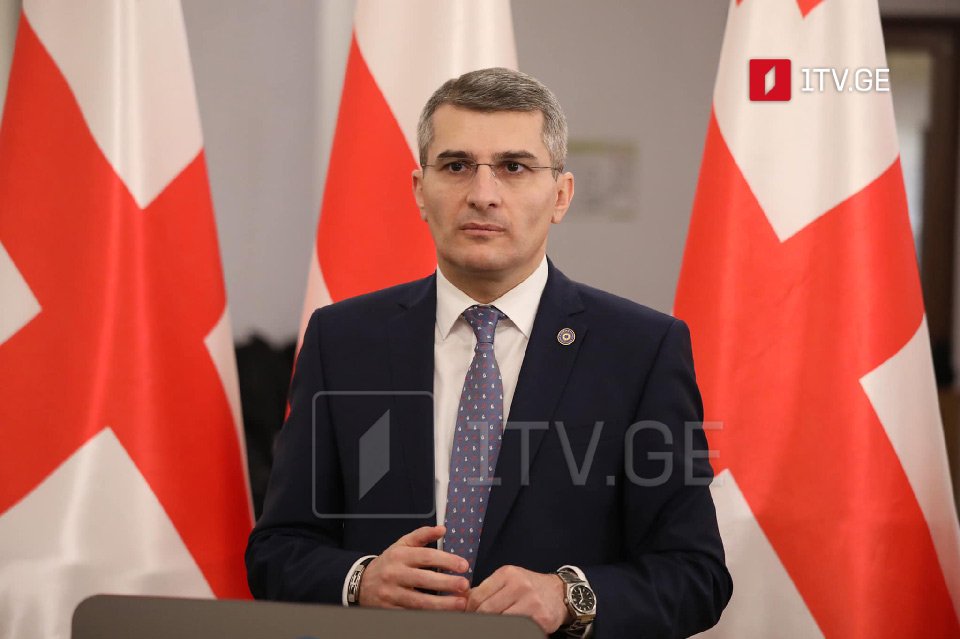
Mamuka Mdinaradze, Chair of the Georgian Dream faction, has accused several opposition figures—including Mikheil Saakashvili, Nika Gvaramia, Mamuka Khazaradze, and Giorgi Gakharia—of operating as agents subordinate to foreign directives. He contended that each vote cast for these individuals poses a threat not only to the nation’s future but also to its very existence.
Mdinaradze asserted that these opposition parties function under a unified agenda, despite their distinct party numbers and logos, serving external interests that run counter to Georgia’s national goals. He emphasized that while the public knows their true intentions, it is crucial to continue revealing specific details to expose their motives.
“Saakashvili and Gvaramia’s controversial past actions render them unappealing to neutral voters. Despite foreign attempts to rebrand the National Movement with new faces like Melia, Japaridze, and Khoshtaria, their shared history of oppression and criminality is well-known,” Mdinaradze stated.
He also criticised Mamuka Khazaradze, describing him as a longtime ally of the National Movement involved in controversial business takeovers during the previous government. He suggested that Khazaradze had enriched himself through dubious means and remained obedient to foreign powers.
“Due to the public’s resistance to rehabilitating the Saakashvili-Gvaramia collaboration, their patrons are attempting to create an illusion of separation between the National Movement and the parties led by Khazaradze and Gakharia, presenting these figures as a new third political centre. This strategy aims to mislead the public by disguising compromised individuals as fresh faces.
However, the public recognizes the truth and can differentiate between genuine politicians and those serving foreign interests. Notably, Mamuka Khazaradze, a former ally of the National Movement, played a significant role in the regime’s corrupt practices. He took control of businesses such as Elite-Electronics and Constanta Bank, which were confiscated from their rightful owners. In the notorious Magnat case, the owner was imprisoned for resisting, resulting in Khazaradze acquiring the property. While many were stripped of their assets and left homeless, Khazaradze, along with a select few privileged businessmen, amassed considerable wealth and was awarded the Presidential Order of Excellence by Saakashvili for his loyalty,” he declared.
Mdinaradze also criticized Giorgi Gakharia, accusing him of acting according to external directives during his tenure in government and orchestrating incidents that damaged Georgia’s image, such as the unrest in Pankisi Gorge and the crisis at the Chorchana checkpoint.
“Gakharia’s actions reveal him to be an operative following external mandates while consistently damaging the government’s image during his time in office. For instance, his high-profile nightclub raid targeting drug dealers failed spectacularly, tarnishing the government’s reputation, and he publicly apologized for police actions, further undermining law enforcement.
In Pankisi, he engineered a confrontation between special forces and locals over a hydroelectric project, humiliating the police to fulfil external objectives. In Mestia, he initiated a poorly coordinated special operation, risking violent conflict without adequate oversight.
One of his most egregious provocations was establishing a police checkpoint near occupied territory in Chorchana, which drew a strong response from Russia and restricted local access to essential resources. This incident exemplifies the types of provocations he could instigate were he to regain power.
The events of June 20 further illustrate his tactics; he positioned police in front of the parliament, leading to clashes with protesters and the use of rubber bullets, likely intended to incite unrest and discredit the government.
Gakharia’s primary objective appeared to be discrediting the government and police, a mission he initially succeeded in achieving. This raises the question of how he transitioned from Minister of Internal Affairs to Prime Minister despite the extensive damage caused. The answer is complex and may be interpreted as a concession to his patrons. This decision was especially critical for the Georgian Dream team, as Gakharia had just resigned from the Ministry of Internal Affairs. At that time, the ministry’s reputation was being systematically undermined through targeted provocations, and Gakharia had robust support from influential forces. Our team remains accountable to these forces and endeavours to avoid deep conflict with them, despite the challenges.
When Gakharia resigned over the arrest of National Movement chair Nikanor Melia, it became evident that his true aim was to destabilize the government and expose the failure of state institutions to uphold the law. Notably, Gakharia requested a two-day delay for Melia’s arrest, which coincidentally allowed Saakashvili to return to Georgia via ferry just before the 2021 parliamentary elections. Thankfully, Gakharia’s plan was exposed and thwarted, preventing further escalation,” he stated.
In conclusion, Mdinaradze warned that these political leaders are prepared to undertake any foreign-directed assignments, which could destabilize the country and potentially lead to armed conflict. He called for vigilant scrutiny of their actions to mitigate further risks to Georgia’s stability.





